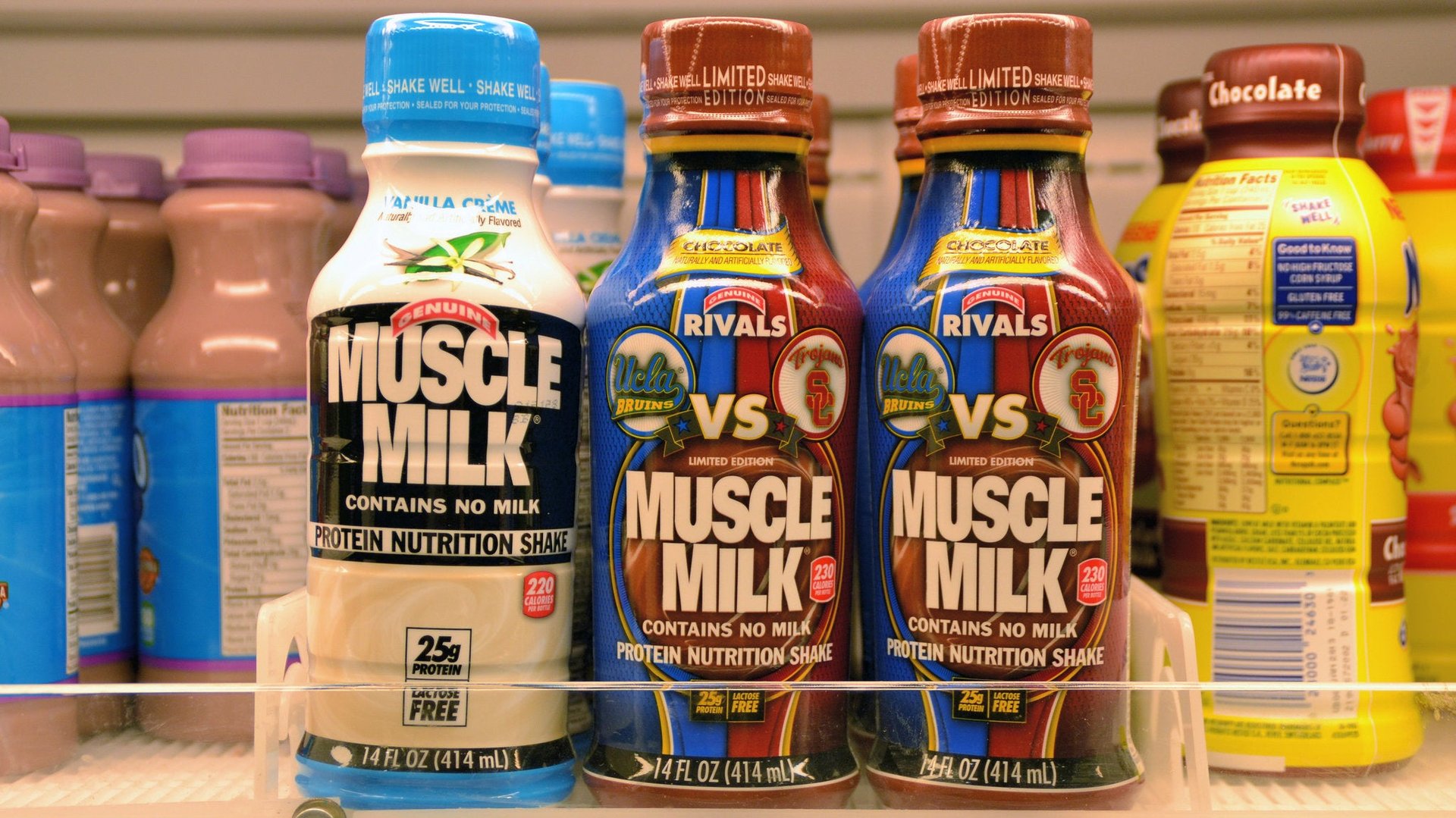
This post has been updated.
There’s no actual milk in Muscle Milk, but that doesn’t seem to be holding back its sales.
Despite multiple complaints about the potentially misleading name, including in a 2011 warning letter from the FDA and multiple lawsuits—one settled with consumers in 2013, one filed by Global Beverage Enterprises in 2014, and a third consumer class action filed in January of this year—sales of both the protein powder and liquid beverage are up.
Hormel acquired CytoSport, the maker of Muscle Milk, in August 2014, and the investment is paying off. In this morning’s earnings report, Hormel announced that its Specialty Foods segment sales “increased 32%, largely attributable to the addition of MUSCLE MILK protein nutrition product sales.”
The complaints against Muscle Milk are not just about the absence of milk, but also the presence of other ingredients. The January class action suit, for example, complains about the product’s use of “perceived unhealthy ingredients,” stating that consumers “often avoid protein powders that contain high levels of fats, oils and unnecessary fillers.” It also alleges that the Lean Muscle Milk Products are not actually “lean” as consumers understand the word: “In fact, Defendant fortifies its Lean Muscle Milk Products with sunflower and canola oils.”
In July 2010, Consumer Reports found that Muscle Milk Chocolate powder had arsenic, cadmium, lead, and mercury at levels near or above those considered safe by the U.S. Pharcaopeial Convention.
In a statement to Quartz, Hormel said that many products with ‘milk’ in the name do not contain milk. It also said that has addressed the issues identified in the FDA warning letter and that “independent, certified third-party testing reconfirms that Muscle Milk® brand liquid, ready-to-drink products do not exceed the levels of these heavy metals as proposed by the USP, California Prop 65 and federal guidelines, and discussed in the Consumer Reports article.” The company dismissed the 2013 and 2015 lawsuits, and said it had resolved the lawsuit from 2014.